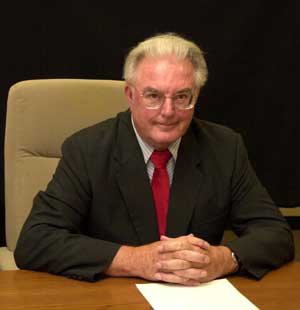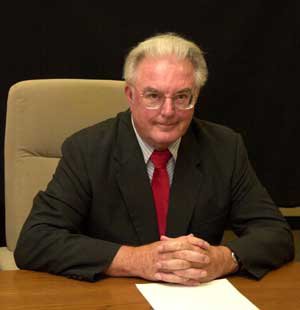Pasadena, Calif.-R. David Middlebrook, emeritus professor of electrical engineering at the California Institute of Technology (Caltech), passed away on April 16. He was 80 years old.
Middlebrook died at his home with family by his side. Born in 1929, he was raised in Newcastle, England, and came to the United States in 1952 on the Queen Mary.
Middlebrook wrote a pioneering transistor textbook that included mathematical models to help engineers use transistors in their circuit designs; a later book focused on differential amplifiers. In 1970, he founded the Caltech Power Electronics Group. The group graduated 36 PhD students, many of whom are now leaders in the power electronics field.
A distinguished international lecturer, Middlebrook was particularly noted for presenting complex material in a simple, interesting, effective, and entertaining manner. He was especially interested in design-oriented circuit analysis and measurement techniques, and his Structured Analog Design course was attended by design engineers and managers from the United States, Canada, and Europe.
Middlebrook also taught inhouse analog-design courses for more than 20 years, working with companies such as AT&T, Boeing, Ericsson, Hewlett Packard, Hughes Aircraft, IBM, Motorola, Philips, Tektronix, TRW, and many others.
He is well known for his Extra Element Theorem, which gives simple formulas for the effects of adding a single element to a circuit. This theorem and its variations are widely used in circuit design and measurements.
Middlebrook received his BA and MA degrees from the University of Cambridge, and his MS and PhD degrees from Stanford University. He joined Caltech as an assistant professor in 1955; he was named associate professor in 1958, and professor in 1965. He became emeritus in 1998.
In 1996, the Caltech student body recognized him as an outstanding educator with its Feynman Prize for Excellence in Teaching.
"For more than 40 years, Dr. Middlebrook taught his students a way of thinking, not just a body of knowledge," the award's citation noted. "[H]e demonstrated to thousands of delighted students how to simplify complex subjects and how to marry theory and experiment. He also taught them a lesson in scientific modesty, as he constantly adopted the best solutions generated by his students."
Middlebrook was a Life Fellow of the IEEE and a Fellow of the IEE (UK). In addition to the Feynman Prize, he was the recipient of the Franklin Institute's Edward Longstreth Medal, the IEEE's Millennium and Centennial medals and its William E. Newell Power Electronics Award, and the Award for Excellence in Teaching, presented by the Board of Directors of the Associated Students of the California Institute of Technology.
He leaves behind a wife, Val, sons John Garrison and Joe Middler, daughter Trudy Wolsky, and grandchildren Chad and Teagan.


